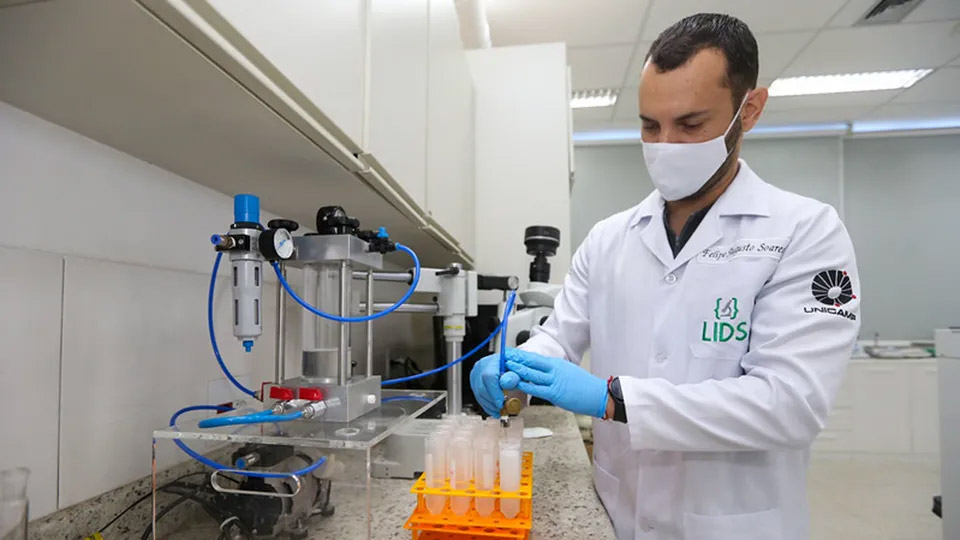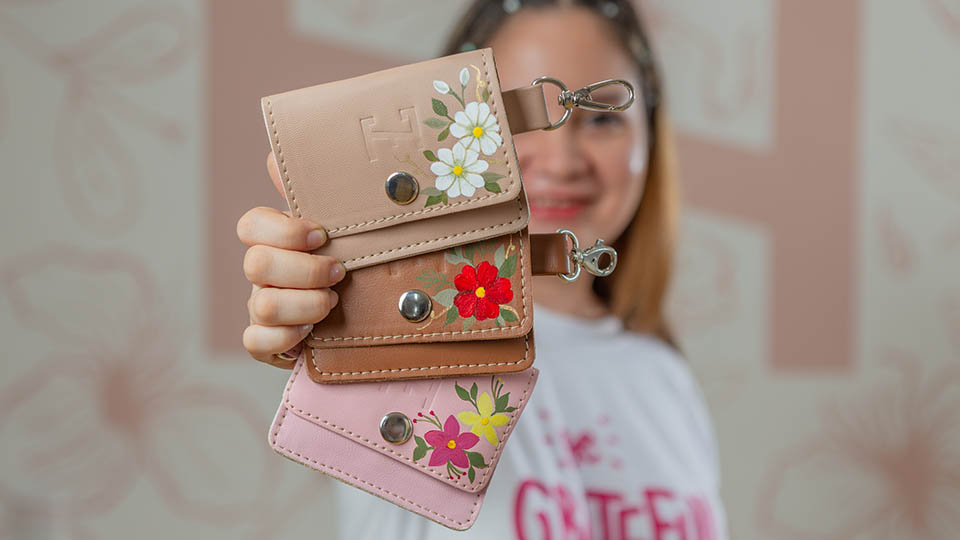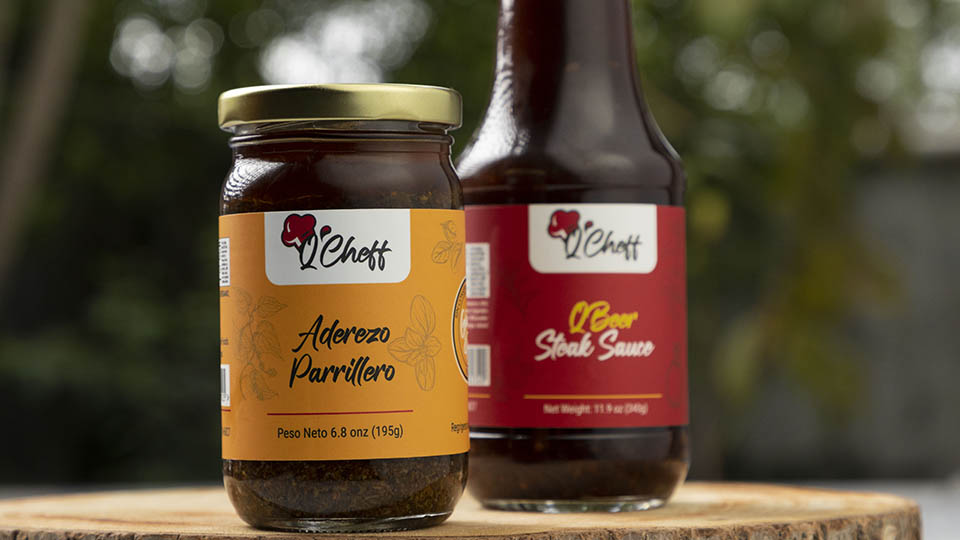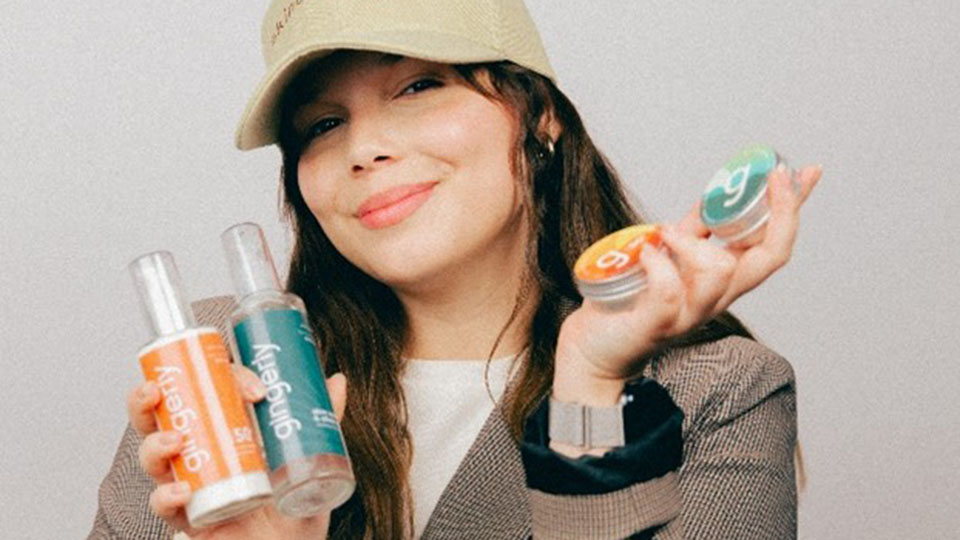Thai Biopharmaceutical Company Harnesses the Power of Plants to Address a Range of Health Issues
Using plant-based technology, Waranyoo Phoolcharoen and Suthira Taychakhoonavudh, both professors and researchers at Chulalongkorn University in Thailand, are hoping to produce life-saving drugs with their company Baiya Phytopharm, ranging from Covid-19 vaccines to anti-cancer drugs, anti-rabies, anti-venom, and other unmet medical need, using a particular species of a tobacco plant.

Waranyoo has always been passionate about plant biotechnology. After a Masters’ in molecular biology in Thailand, Waranyoo received a scholarship from the Thai government to do a Ph.D. in plant biotechnology at Arizona State University in the United States. Her Ph.D. focused on a plant-derived Ebola vaccine.
Two years after Waranyoo came back to be a lecturer at the Faculty of Pharmaceutical Science of Chulalongkorn university, she won a Newton International Fellowship from the Royal Society in the United Kingdom to work on plant-developed anti-rabies antibodies.
Upon her return, Waranyoo decided to start her own research on plant-produced pharmaceuticals while continuing her teaching career. This type of technology, she said, did not need a large amount of research funds. She started producing vaccines for hand-foot-and-mouth disease, and antibodies to treat rabies and some cancers. With limited funding, however, she could only test her drugs on mice.
Using Plants as Bioreactors
Plants are living organisms, they have DNA and produce proteins, Waranyoo explained. Baiya Phytopharm is using plants to produce proteins needed to manufacture all sorts of life-saving medicines. The company insert a given gene into the leaves of plants, inducing proteins production. Some 4 to 7 days after the gene insertion, the leaves are harvested, blended, and purified to extract the proteins that have been produced by the plant.
Protein-based treatments can address a wide range of conditions, including virus and bacterial infection, and chronic diseases.
Baiya Phytopharm, Thai-Made Plant-Based Drugs
Several years ago, Waranyoo met Suthira who is a professor at the same faculty. A pharmacist by training, she is an expert in the health economy and works on policy and the cost of drugs, helping the government with drug selection. Suthira was also consulting for large pharmaceutical companies.

Thailand relies entirely on imported drugs and has very limited bargaining power on prices. Visiting some companies in the United States and Germany that use this technology convinced Suthira. In 2018, they pooled their savings, and co-founded Baiya Phytopharm, the first spinoff company of the Faculty of Pharmaceutical Science, with a very small laboratory and four staff. They named the company after the Thai words “Baiya”, Bai which means leaf, and “Ya”, which means medicine.
They started producing growth factors that have a lower level of regulation than pharmaceuticals and selling it as raw materials for the cosmetic and cell-based meat industries.
“Then Covid hit in 2020 and everything stopped,” Waranyoo said. The growth factor sales plummeted, and the team switched their focus to producing a Covid-19 vaccine as soon as the SARS‑CoV‑2 genome sequence was available, in January 2020.
Plant-Based Covid-19 Vaccine from Tobacco
Baiya Phytopharm produced a vaccine prototype in February 2020, using a particular species of wild tobacco plant, which contains a low level of nicotine, she explained, adding that the company uses non-genetically modified and non-transgenic plants.
“We chose this plant because it is easy to transfer the gene into and we can produce a large amount of proteins,” she added.
After testing their vaccine on animals, and producing promising results, Chulalongkorn University raised funds and the company received donations from both the public and private sectors. “We raised about US$3 million and used that money to build a facility to produce a vaccine for clinical trials.”
The facility, built to answer “Good Manufacturing Practice” (GMP), was completed in July 2021 and approved by the Thai Food and Drug Administration. By August, the company started producing its Covid-19 vaccine, and Phase I clinical trials started in September 2021. “That was a big step for us because we were the first one to come this far for a Thai-produced vaccine which was developed from the beginning in Thailand.”
Clinical Trials for Protein-Based Covid-19 Vaccine
The company’s Covid-19 vaccine is a protein-based, or subunit vaccine. “The structure of the protein that we produce with plants is quite similar to the viral protein,” Waranyoo explained, adding that editing the vaccine with a new variant would be not only feasible but also done within days.
The first vaccine produced by the company used alum, a well-known adjuvant but for its second-generation vaccine, the company collaborated with 3M to use their new adjuvant, which produced a better immune response.

Phase I clinical trials test the safety of the vaccine, using a small dosage on a limited number of volunteers (16). No side effects were recorded after a year of weekly checkups and testing on all volunteers. The company is still optimizing the dose of the protein and the adjuvant. Phase II clinical trials, which test and measure the immune response induced by the vaccine, and usually last three or four months, are expected to start in a couple of months on a larger panel of volunteers, according to Waranyoo.
If all goes well, she said, in 2024 Baiya Phytopharm will be able to produce a Covid-19 vaccine for Thai people. With around 1,200 square meters of laboratory, the company can produce 5 million doses per month, 60 million doses a year, and “we can scale up the production for the region if we want to.”
“Before we started Phase I clinical trials, many people questioned vaccines from plants. Now people can see the data and know that the plant vaccine is safe to use in humans,” she said.
Fighting Cancer, Rabies, and Venom with Plant BioTechnology
Beyond Covid-19, Waranyoo and Suthira’s goal is “to produce drugs and vaccines addressing unmet medical needs in Thailand and in the region.” Anti-venom for example, Waranyoo said, is crucial as many people in Thailand and other countries in Asia still die from snakebites. Another issue that needs solving is rabies, as there are a lot of rabid dogs in the country and people getting rabies do not have access to human immunoglobulin but have to contend with horse-produced antibodies and suffer the side effects.
“Antibodies for cancer and anti-venom are also proteins, so we use the same process. The only difference is the gene that is inserted into the plant,” she explained.
“Nowadays, every family has someone dying from cancer. It would be great if we could use our technology to produce effective and affordable cancer drugs.” “In the United States, there are so many drugs that patients can try, but we do not have a chance to access these treatments.”
The company is currently in a fundraising campaign to fund its efforts at producing several biopharmaceutical products and pushing them into clinical trials, including anti-cancer, anti-rabies, and anti-venom.
Plant Biotechnology with Low Budget R&D and Production
The plant-based biotechnology is particularly suitable for low and middle-income countries, Waranyoo remarked, pointing out the fact that the company spent US$15 million over 40 months, managing to build one GMP facility and manufacture two biopharmaceutical products going through clinical trials. “I believe we are one of the fastest moving biotech companies with such a reduced budget,” she said, adding, “we can prove that with this technology we are efficient in terms of time and the money that we spend.”
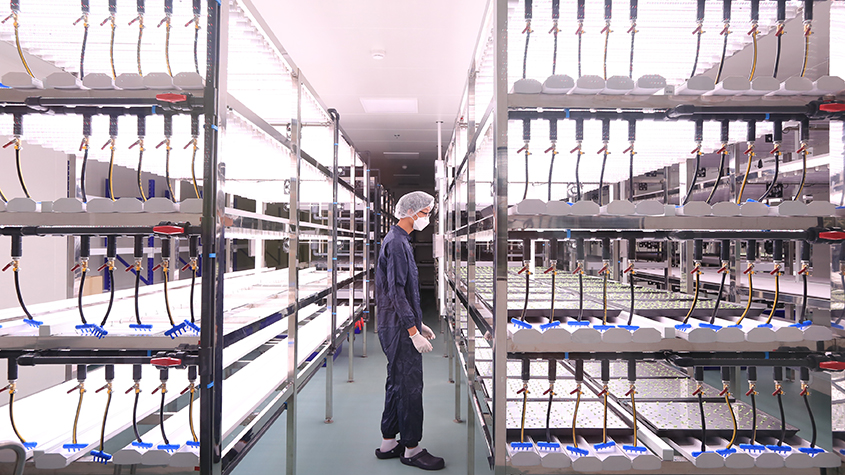
One of the reasons for that low budget is the fact that both Waranyoo and Suthira are professors at the university, and can attract young talents to work for the company at affordable prices. “I am one of the oldest people in the company, says the 42 years old. Half of Baiya Phytopharm’s staff now reaching 90 people are their students. “They can work in the lab of a real company and are really excited about their work, making a difference in the world rather than doing basic research.”
Baiya Phytopharm has applied for two patents on its technology and trademarked its name. According to Waranyoo, IP is very important for the company for fundraising and future licensing.
Growing to be a Global Biotech Company
Although she said entrepreneurship was not on her mind some years ago, Waranyoo and her co-founder have plans to become a global biotech company. The ultimate goal of the biopharmaceutical company is to produce safe, efficient, and affordable drugs and vaccines, meeting international standards, so it can sell to every country in the world, and in particular, developing countries in the region, she said.
In the next five years, the two women are expecting to have some biopharmaceutical products in commercialization and to be fully prepared for the next pandemic, whenever that happens “so our people don’t have to wait for the vaccine as we did with Covid-19.”
Deploring that young researchers sometimes choose another path in the quest for a decent income, Waranyoo hopes the country will continue building a strong science and technology sector, serving development, and keeping promising talents.
